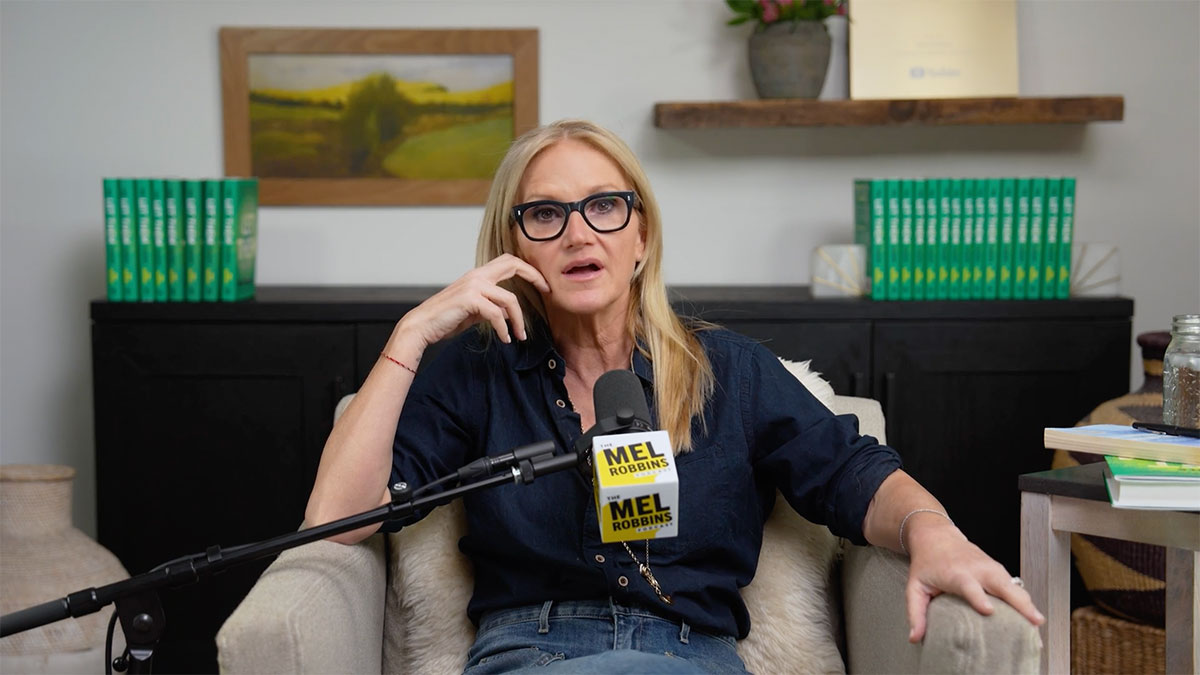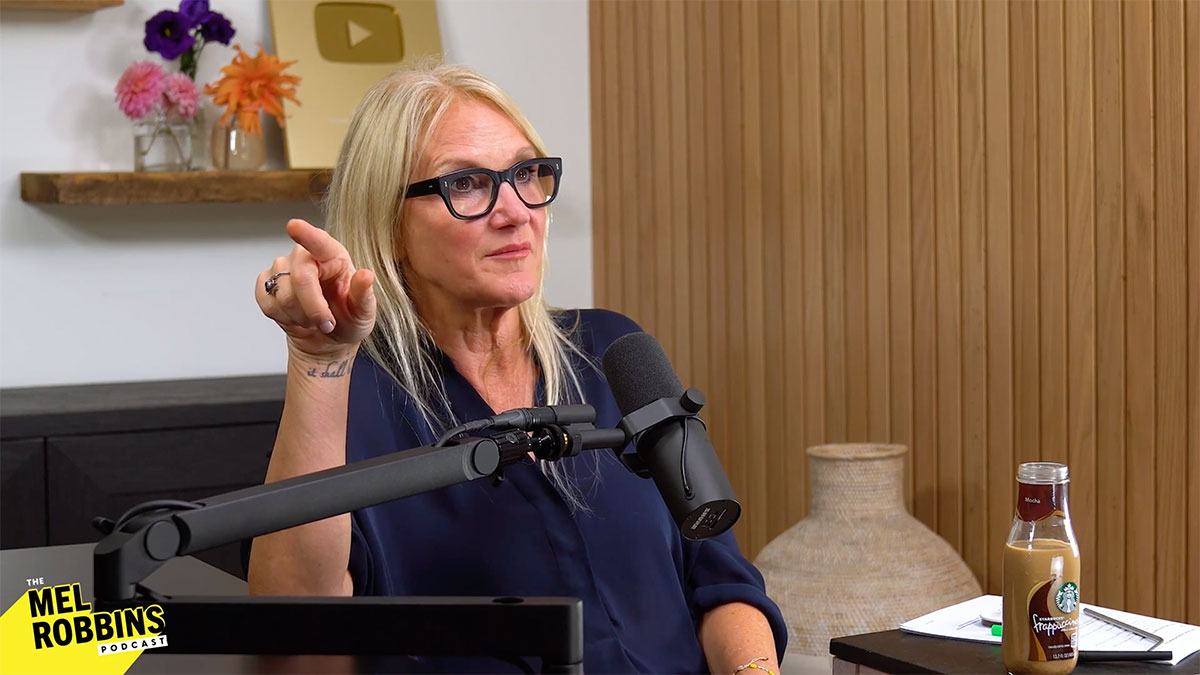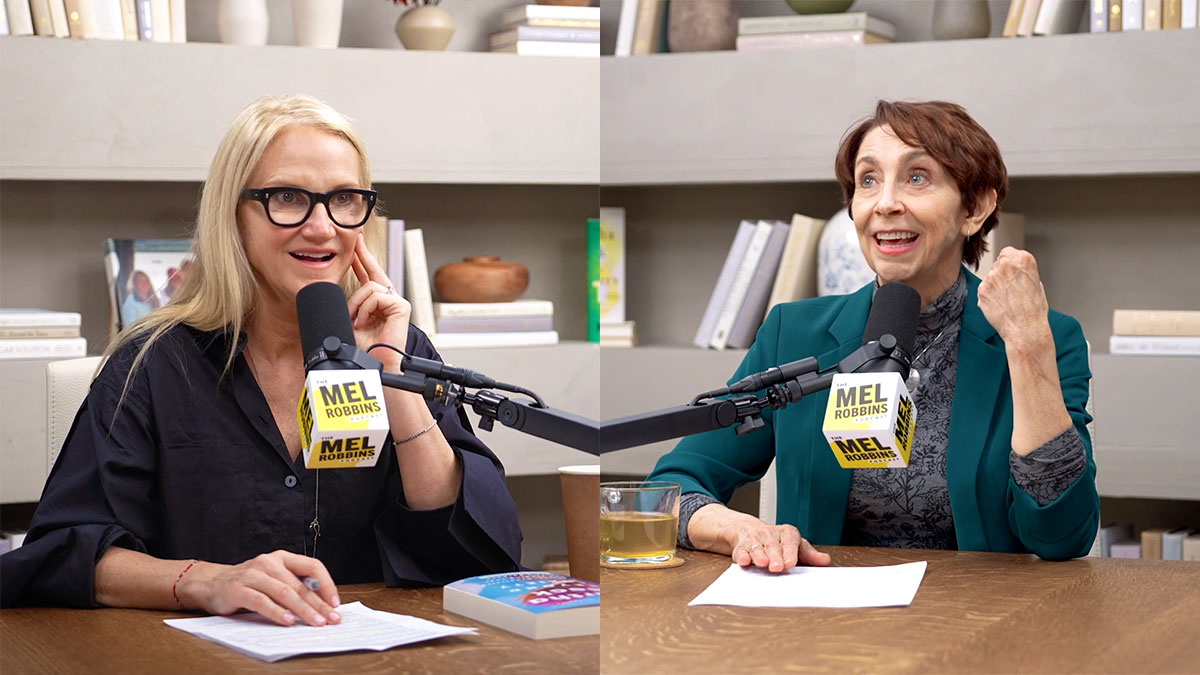(08:49):
When you lose somebody that you love, it is a mentally healthy response to be in a depressive state. It's a sign that your mind and body are working well. If you have somebody break up with you, of course you're going to be sad and overwhelmed and lost. That's a sign that everything is working as it should. It's a sign that you cared. It's a sign that you are feeling things. That's a good thing. You don't need to be scared of these emotions. You don't need to run away from them because it's a sign that you're reacting to something that's unfair or cruel in a healthy appropriate way. As she says, do the emotions and feelings match the situation? And so if you're facing something unfair, you need time to grieve. You need time to be upset. You deserve to be angry about it, and you have to give yourself the time to feel those emotions or else you're going to be in trouble.
(09:48):
And I'm telling you this, not because this is my opinion. I'm telling you this because I found a research study and I want to share the science with you about why it's so important to give yourself this defined moment where you go, okay, I am going to allow myself to feel what I need to feel. After nine 11 researchers at uc Irvine did a study on how people across the United States were coping with the trauma of this mass tragedy. And they found that even six months after the attack, so many people were still experiencing heightened anxiety, post-traumatic stress symptoms. Of course they were. But what made a big difference though was how people coped with those feelings immediately after the nine 11 attack. See, the people who took active steps to manage their emotions like seeking support, planning ways to move forward and finding ways to process what happened, they were able to heal much faster.
(10:45):
And that last piece, finding ways to process what happened, that's what we're doing. By setting a deadline, you're actually intentionally in time saying, I have to find ways to process what happened. So I'm going to give myself this defined space to do it. And it's so important because check out what happened to the people who didn't give themselves the space and the grace to process what happened? Well, they found the worst thing that you could do. The worst thing was to shove the emotions down, to just try to move on, to deny yourself the time to feel the emotions, to try to distract yourself, to get back to work, to just kind of pull up your big girl panties and move on to kind of give up. You want to know what happened to the people who did that, who didn't give the space to manage and process these emotions.
(11:39):
They were still experiencing PTSD and anxiety symptoms months and years after nine 11. See your emotions and feelings and all that stored tension. It doesn't go anywhere. If you shove it down, just builds up. That's why if you're in a situation where life is unfair or something cruel has just happened or you're overwhelmed or you're just feeling like you can't catch a break, you have to give yourself time to feel what you need to feel. And that's exactly why step one is give it a deadline because it creates the space for you to do what you need to do to not run from these emotions, but to acknowledge them and to acknowledge them and say, wow, I'm actually mentally healthy because I'm responding to this overwhelming situation with these overwhelming feelings and managing your emotions by seeking support, processing what happened, planning ways to move forward.
(12:37):
That's what's going to allow you to move forward because it's not time that actually heals. It's what you do with that time that matters. And that's what we're talking about. So let's first create the time because I'm not just suggesting that you do it. I am telling you this is what the science and the research says, and I want you to benefit from it. And I know you're thinking, Mel, how do I even know how long I need to give myself? Well, the answer is it depends on you and it depends on the situation that you're in, and it depends on the emotions that you're feeling. And I don't really care as much about how long the deadline needs to be or what the exact date is. That's not really what matters. What truly matters is the intentional act of acknowledging this is unfair and cruel, and then acknowledging that you have appropriate feelings.
(13:28):
Of course you would in response to this. And then acknowledging that you need the space and you need some time to allow those feelings to rise and fall to allow yourself the time to process what you actually are going through. And I want to give you some just kind of rules of thumb or some of the research from what the experts say. Like for example, when I was researching the Let Them theory and I was talking to a lot of psychologists and psychiatrists, the research shows that after somebody breaks up with you, it takes people about 11 weeks before they start feeling better. And we also know that grief, after you lose somebody that you love or you lose the home that you have lived in forever, that it can take anywhere from six months to two years before you can start to settle in to a new normal.
(14:20):
And the advice that I've always heard after somebody that you love dies is make no changes for one year. Now, these are just rules of thumb. These are what the experts in the research advise for the kinds of situations that feel so unfair and that can feel cruel. And yeah, it may take you a little longer than 11 weeks. It might take you a little less, but you need to give yourself a date. And the other thing that I love about setting a date is it's a sign to you in a calendar that this is not going to take over your life because it doesn't have to. What I'm recommending is something else. I'm recommending that you give yourself permission and you also set this date. So this chapter ends, this scene is going to be over, the movie is going to go on and you are going to be okay that there is an end to this.
(15:17):
But while we're in it, let's be in it. Let's play the sad songs. Let's be in a depressive state. Let's live in our pajamas. Let's cry, let's wallow. Give yourself permission if you have to scream into that pillow, it's not fair. Do what you need to do to feel the emotions and let 'em come and let 'em go because I promise you that deadline's going to come. And if you gave yourself this space and this grace, you my friend, are going to be in a very different place. And by the way, I've been talking about these big, heartbreaking, gut wrenching things. But let's talk about some of the stuff that we tend to beat ourselves up over that aren't fair that you've been doing for years and years and years. Like you beat yourself up over your height or your body or the way your face looks or your complexion.
(16:14):
You've already been grieving the state of things for years. You've already made yourself feel bad and put yourself down and been invalidating yourself. So if the unfair thing is something that you've been living with for a long time, your friend Mel Robbins has a recommendation. How about the deadline be 5:00 PM today because the wallowing has been going on for long enough and it is time to move on. And the wallowing we know is no longer helping you change this situation. It's not making a positive dent in the situation. It just makes you feel bad. It's chipped away at your confidence. It's made you feel disempowered. And the deadline I want you to give yourself is tonight at 5:00 PM because this scene in the movie, it's over and we're going to move on. And that brings me to step number two, which may seem simple. In fact, it might even seem a little stupid or obvious, but it's the most crucial and a lot of people miss it because if you don't do this step, you'll never be able to move forward and you're going to get trapped in this scene. And it's this, you have to accept what has happened.
(17:26):
You need to accept reality. And you may be thinking right now, wait a minute, Mel. I mean I just did. Weren't you and I just shouting life isn't fair. Yeah, we were. But you're probably still deep down wishing things were different. See when you wish things were different, you're resisting reality. It's one thing to accept the fact life isn't fair. This is cruel. I don't deserve this. It's a whole nother ball game to accept that this is what has happened and it's not changing. And the longer that you hold on to the wish that this didn't happen or that things were different or that somehow the situation wasn't what it was or you weren't in the position that you're in, the longer you hold on to this wish, the longer you prolong your own suffering. I mean most of human suffering, our internal pain, our anguish, it comes from the desire to have things be different than how they are.
(18:31):
I mean, this is philosophies that date back into the beginning of human history, whether it's stoicism or Buddhism, this notion of learning how to accept the things you cannot control. There's one quote I love from the poet Rumi. Try not to resist the changes that come your way. Instead, let life live through you honestly. That's the let them part of my theory, let them is when you accept things as they are and as they're not let them is when you




